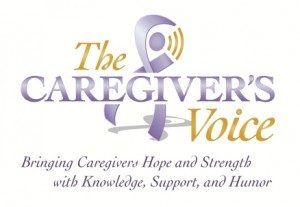The post is developed in partnership with BetterHelp.
When we don’t have the proper coping skills to deal with a situation, relying on unhealthy behaviors to help us through becomes the norm. However, while these unhealthy behaviors may bring us temporary relief, it doesn’t provide lasting solutions. At The Good Men Project, we strongly believe in your ability to do better, find healthy coping mechanisms, and become a healthier you. Here’s how talk therapy can help you achieve those goals:
What Is Self Medicating?
Before jumping into how talk therapy can help you overcome using self-medicating as a coping strategy, we first need to understand what self-medicating is and why we use it. According to the American Psychological Association, self-medication is the use of drugs or alcohol to alleviate emotional problems.
Why Self-Medicating Is A Problematic Coping Strategy
For some people, using drugs and alcohol can help suppress emotions they don’t want to feel in the short term, but can have highly negative consequences in the long term. Drugs and alcohol can not only be addictive, dangerous, and wreak havoc on your physical health but they also mask emotional problems rather than resolve them. This means that those negative emotions, problems, and symptoms you are trying to hide from with self-medication will likely rear their ugly head with even greater fury later down the line.
What Is Talk Therapy?
Rather than masking your emotions or problems, the best way to deal with them is head on! Unfortunately, this is easier said than done. That’s one reason why going to talk therapy can be so helpful. In talk therapy, rather than feeling as though you are facing your problems alone, you are instead supported by a therapist to work through issues and find resolutions. Here are a few other ways talk therapy can help you overcome issues with self-medicating:
1. Understanding Why You Are Self-Medicating
The reason for self-medicating isn’t always blatantly clear. For example, maybe you know you have been drinking more to deal with a recent break-up. However, maybe you have just been feeling down and while you’re not sure why, you do know using your drug of choice makes you feel better. Either way, therapy can help you delve deeper into what’s behind your self-medication. For instance, what emotions behind that break up are making you feel uncomfortable, sad, or angry and how can those be successfully addressed over the long-term, rather than masked with alcohol over the short-term?
2. Confront The Emotions You Are Masking
Facing difficult emotions head on is necessary to work through them, however, without professional guidance, confronting your feelings can backfire and cause you to rely more on self-medicating and negative coping strategies. Talk therapy can help you to confront the emotions you are masking with self-medication in a controlled and safe environment. You can rest assured that while confronting these emotions on your own can be overwhelming, confusing, and difficult, a licensed therapist is trained in how to help you confront these emotions in a way that will make you feel better, not worse.
3. Find Alternate Coping Strategies To Self-Medicating
One of the great things about talk therapy is how it gives you the tools you need to build your own resiliency and cope with difficult situations long after you’ve stopped seeing a therapist. Through talk therapy, you and your therapist will come up with healthier coping strategy options than just self-medicating. These may include strategies like going on a run when you begin to feel stressed, using music to help you process your emotions, journaling your feelings, or calling a close friend to vent. Coping strategies like these can help you to avoid self-medicating by offering you solutions that are both healthy and promote long-term wellness.

Photo Credit: iStock
The post How Talk Therapy Can Help You Say Goodbye to Self Medicating Once and for All appeared first on The Good Men Project.
Original Article










